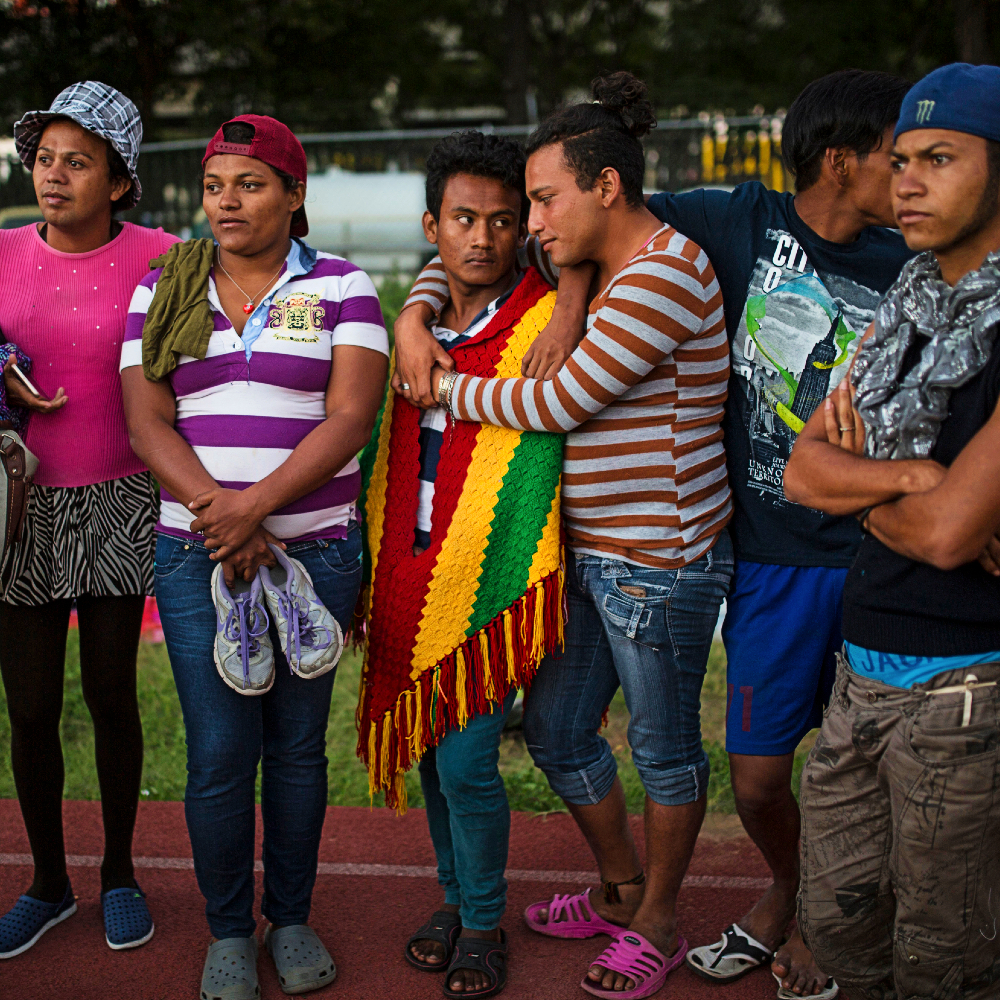Guatemala: LGBTI Interaction with Society and State
As Equaldex notes, LGBTI rights in Guatemala are, at least on paper, quite elevated. The site notes that “homosexual activity” is legal, there’s a legal ability to change gender, and that there are some discrimination protections for the LGBTI community. Conversely, same-sex marriage is still unrecognized and conversion therapy is legal but, all things considered, it appears to be a somewhat progressive country. Despite these recognitions by the state, such things have not yet permeated at the societal level or within some state institutions.
In March of 2020, the U.S. Department of State published their country report on human rights practices in Guatemala, and it illuminates why the LGBTI community continues to emigrate. Despite state protections on paper, there is a lack of state presence even within Guatemalan state institutions like prisons. Within prisons there were reports that “other prisoners often sexually assaulted LGBTI individuals, and there were insufficient facilities to protect LGBTI individuals in custody.” Yet, this does not nearly show a broad overview of society. This is only a small look at the violence against the community. As the State Department remarks later in the report, “extreme violence against LGBTI persons remained a persistent issue.” Hand in hand with “societal discrimination against LGBTI persons in… education, health care, employment, and housing,” there were over a dozen murders reported that were committed due to the victims’ LGBTI orientation in the first months of 2020, along with multiple instances of forced marriages, rape, and other forms of assault. Such instances are reinforced by the “lack of will” that the police have to find the perpetrators, as the police often turn a blind eye or even on occasion actively engage in the “extortion and harass[ment]” of the LGBTI community. The state, despite some protections, ultimately lacks the resources and oftentimes the will to help the LGBTI community, and in a country where society is generally unfriendly to those who identify as LGBTI, some see emigrating as their only option.
Leaving Guatemala: The Stories of Estuardo and Luna
Estuardo Cifuentes is a gay Guatemalan migrant and, as Lorena Arroyo of El País reports, “fled persecution at home.” A police officer caught him kissing his partner and with that he was subjected to insults and surveillance that caused him to fear for his safety. Despite this being the final push, it wasn’t the first time he faced problems related to his sexuality. He was at one point even “blackmailed by the gangs” that were present in his region because of who he was. This all culminated in his needing to leave, and he did. He made the decision to head north to the U.S. and, with the help of a smuggler, made the journey. Over seventeen days the journey saw him walking long hours, sharing facilities, and even being kidnapped (he was eventually able to pay for his release). Then, after that nightmare, he was subjected to further abuse by U.S. authorities and, as is common with other migrants in recent years, was stuck in limbo. He witnessed how the LGBTI migrants were treated worse by other migrants and locals near his migrant camp, and while waiting for his asylum he set up an organization (Rainbow Bridge) to help. Estuardo is not the only one who has shared the nightmarish tale of harassment and migration.
Sasha Khoka and Erin Siegal McIntyre of KQED interviewed Luna Guzmán, a transgender woman from Guatemala who also left due to persecution. As a transgender woman, she was subjected to immense stigma and violence. At thirteen she was raped by “an older man who was a neighbor,” and this led her to being trafficked into a life of prostitution. The police turned a blind eye, and sexually transmitted diseases like HIV were rampant among those being trafficked. Despite getting herself out of trafficking and becoming a firefighter, as soon as her coworkers found out she was HIV positive she was subjected to immense harassment. With nowhere to turn in her community, at the age of twenty-two she fled north, much like Estuardo. Yet, also like Estuardo she faced abuse at the hands of US authorities at the border, and she was subjected to sexual harassment in ICE detention facilities where she was held. Despite being deported, she made her way to Mexico again, where she currently resides with a friend.
Both stories show the terrors LGBTI individuals in Guatemala endure, and both show how necessary it is that they leave. Problems at the U.S. border and issues with border policy in general means that even in the face of persecution at home, LGBTI migrants can be stuck in limbo or even sent back to the abuse and danger of their homelands. Kamala Harris was right to highlight how violence is a major problem in Guatemala, causing LGBTI individuals to flee. However, solutions require more than mere recognition. If people are willing to leave once because of violence, why would sending them back be a suitable fix to the problem? Considering these issues, both at the broader level and at the personal level, as seen in Estuardo and Luna’s stories, something needs to be done that fixes the root cause of these issues, beyond public condemnation.

Alexander Champeau, 14th May, 2021

